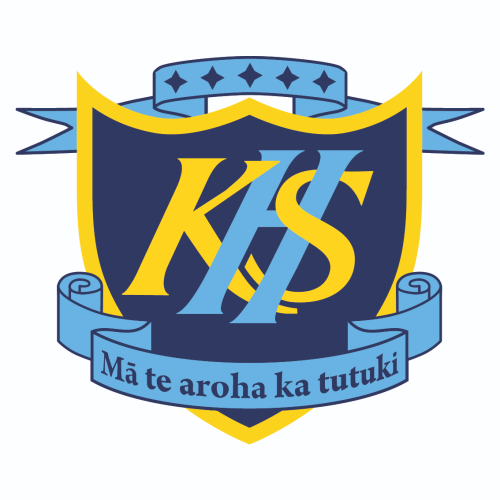
From the Principal's desk
Welcome to the May edition of our school newsletter!
We would like to express our sincere gratitude to all the members of our school and wider community for their unwavering support of our students during the busy past four weeks of this term. Without the support of whānau, community members, and local businesses, many of the events we organised would not have been accessible to the majority of our students.
A special thank you goes out to everyone who supported our recent school production. The sold-out shows were a remarkable display of the dramatic and musical talents of our students. We acknowledge the tremendous amount of work, time, and effort that went on behind the scenes, as well as the emotional and physical energy expended. The quality of the end product is a testament to the dedication and passion of the director, writer, producer, crew, cast, culinary staff, and countless supporters. We sincerely appreciate everything you've done to provide us with such a memorable, fun, vibrant, and slightly terrifying evening.
Typically, my messages in this section carry a more serious theme for reflection. The purpose of this section is to keep whānau informed about trends we have observed and are actively addressing. The particular theme I want to discuss today has been touched upon in various ways before.
Our students exist in a world of overwhelming information. It is constantly at their fingertips, readily accessible. However, the quality of the information they receive varies greatly. Publishing information to a wide audience does not require one to be tested, truthful, or knowledgeable. Furthermore, social media platforms are designed to cater to users' preferences, often reinforcing their existing beliefs and limiting exposure to alternative viewpoints. Importantly, anyone can publish anything, regardless of their level of expertise or ethical consideration. It is crucial that we encourage our children to critically evaluate the information they encounter.
As part of my role, I frequently meet with students and their families when a student has made an unwise decision. The majority of these situations stem from a lack of critical analysis of information they have received from others. During our discussions following such incidents, we often explore techniques to help them evaluate the information presented to them. Here are four suggested steps:
Pause before responding. If in doubt, refrain from replying.
Does the information align with your real-life knowledge of the situation? Does it seem plausible?
Is the source of the information reliable and trustworthy?
If action is required, who is the best person to ensure a real-life, positive outcome?
Additionally, I encourage students to consider the motivation behind the person sharing the information. Most of the time, there is no malicious intent, normally it is someone unknowingly perpetuating a harmful untruth. However, we must also acknowledge the presence of trolls, individuals who thrive on escalating conflicts, within our online community.
Our children would greatly benefit from the guidance of respected adults in navigating their responses to stories they encounter online. When you come across something that doesn't seem true, use it as an opportunity to teach your whānau. As adults, we possess enough experience to instinctively recognise dubious information, but our tamariki need our guidance in developing the same assessment skills.
We extend our heartfelt thanks to everyone who has persevered and read this message in its entirety. This is an incredibly important topic for our children (and even some adults) to become proficient in.
In conclusion, I leave you with a whakataukī/proverb to ponder:
"He pūreirei whakamatuatanga."
(A faithful fatherly tuft of rushes)
You might be curious about the connection between this proverb and my message. It speaks to the act of leaping from one clump of swamp grass (pūreirei) to another in order to cross a swamp. Some clumps are dependable, while others are not. Let us assist our children in looking before they leap, guiding them to discern reliable sources of information and make informed decisions.
Together, as a community, we can empower our tamariki to navigate the vast landscape of information with wisdom and critical thinking. Thank you for your continued support and dedication to the growth and well-being of our students.
Kia tino pai te rā, have a great day.
Jason Reid
